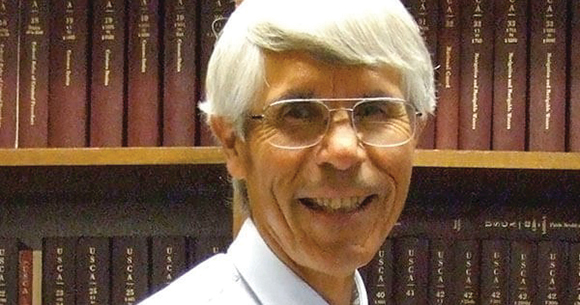Dr. Michael Tillman, a long-time advocate for whales and conservation, died in July at the age of 80.
Dr. Tillman was born in Seattle, but his roots extended northward: Through his maternal family, he was a member of the Tlingit Tribe of Southeast Alaska. In 1972, he obtained a PhD from the University of Washington in fisheries science with a focus on marine mammal biology. He took a job with the National Marine Fisheries Service and, in 1974, began representing the US government at the International Whaling Commission, serving as deputy US commissioner (including stints as acting US commissioner) from 1994 until his retirement from NMFS in 2004. He remained active within the IWC and continued to advise the US delegation after his retirement.

Dr. Tillman chaired the IWC’s Scientific Committee from 1983 to 1985—a period during which he also served as the first professional director of the International Union for Conservation of Nature’s Conservation Monitoring Center. From 2011 through his last IWC meeting in 2018, he chaired the IWC’s Aboriginal Subsistence Whaling Working Group and worked with Native Alaskans and other subsistence whalers to provide for their subsistence needs while conserving whale populations.
In 2010, President Obama appointed Dr. Tillman to serve as one of three commissioners of the Marine Mammal Commission, an independent government agency providing oversight of marine mammal conservation policies and programs conducted by federal agencies. He served on this commission until 2022. Throughout his long and storied career, Dr. Tillman promoted opportunities for greater participation of women and minorities in field research and as government representatives at international meetings on global environmental issues.
In 1951, with permission from Dr. Albert Schweitzer, AWI created the Schweitzer Medal to honor outstanding achievement in the advancement of animal welfare. In 1994, the Schweitzer Medal went to Dr. Tillman in celebration of his whale protection work at the IWC—in particular, his pivotal role at the 1993 IWC meeting in Kyoto, Japan, in defeating a concerted effort by pro-whaling nations to end the moratorium on commercial whaling, in effect for only seven years at that time. The moratorium remains in place today, thanks in no small part to Dr. Tillman’s early defense.
At the ceremony, the medal was presented by acclaimed actor Jason Robards (a staunch supporter of environmental causes), who praised Dr. Tillman’s leadership, scientific acumen, and “very firm grasp of the vagaries of the IWC and its Scientific Committee.”
In his acceptance remarks, Dr. Tillman referenced a familiar saying—where there’s a will, there’s a way—but expressed his preference for an older, more resonate version: If the will is strong enough, the means will present itself. He noted that those who passed the whaling moratorium had the clarity and the will to pursue this daunting goal for more than a decade. He stated that his own will to pursue a particular course of action emerged from “a strategic sense of the kind of world I’d like to live in, and the one I’d like to leave behind.”
AWI and his legion of friends and colleagues at the IWC and beyond are grateful for Dr. Tillman’s indomitable will, and the five decades he spent leading the way to greater protections for whales and other marine mammals.